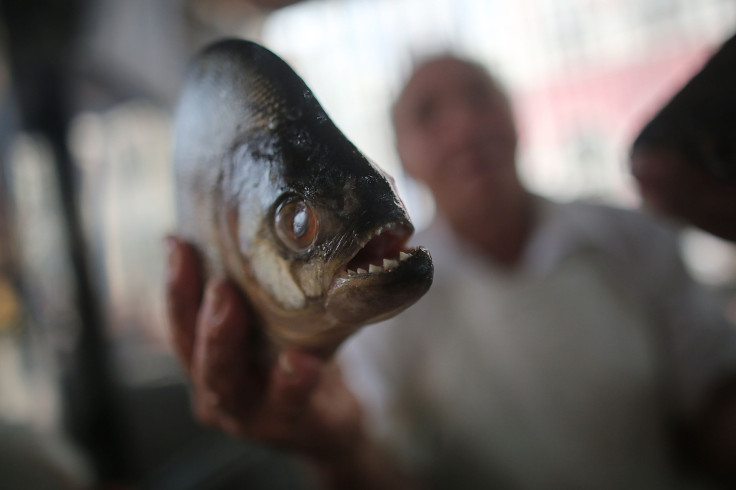Flesh-Eating Piranha Found Dead In Sewer System Prompts Warning

A flesh-eating fish discovered in a sewer system in England caused officials to warn residents not to flush exotic pets down the toilet.
Southern Water, a water treatment company in West Sussex, took to Twitter Wednesday and posted a picture of a piranha after a worker discovered the fish dead in the sewer. The company said the animal likely belonged to someone who flushed it down the toilet after it died.
Today's #InvasivesWeek theme is exotic pets. Be kind to pets and the environment - never release them or allow them to escape into the wild. Look who turned up at our #Chichester works to mark the day! pic.twitter.com/dYgfa8RQTx
— Southern Water (@SouthernWater) March 28, 2018
"Be kind to pets and the environment - never release them or allow them to escape into the wild," the company tweeted with an image of the fish.
"Obviously someone who owns exotic animals must have flushed it down the toilet, I don't think it managed to migrate all this way," Southern Water spokeswoman Nicola Crichton told the Telegraph. "People will flush anything down there toilets, we once found a bed sheet at the waterworks, and find all sorts of strange things."
The water company routinely performs inspections of the system and said it urges customers to refrain from flushing certain items down the commode, which can clog pipes and cause damage.
"Our campaigns normally focus on stopping people flushing plastic-based materials such as wet wipes, sanitary products, condoms and nappies down the toilet," Southern Water communications officer Simon Fluendy told the publication. "There's only the three Ps which should go down the loo - pee, poo and paper. Piranhas are not one of them."
After the discovery, the company assured customers could go back to using their toilets. Piranhas are not known to attack and pose little threat to humans.
"We would like to reassure our 4.6 million customers that it is safe to use their toilets as normal," Fluendy said.
The piranha is a freshwater fish known for its powerful bite. It can grow to be anywhere between 5 to 20 inches based on the species. The fish dwells in South America and the floodplains of the Amazon and other South American rivers, according to the Smithsonian.
Omnivorous by nature, the piranha’s diet includes insects, crustaceans, worms, carrion, seeds, plants and sometimes other fish.
© Copyright IBTimes 2024. All rights reserved.











